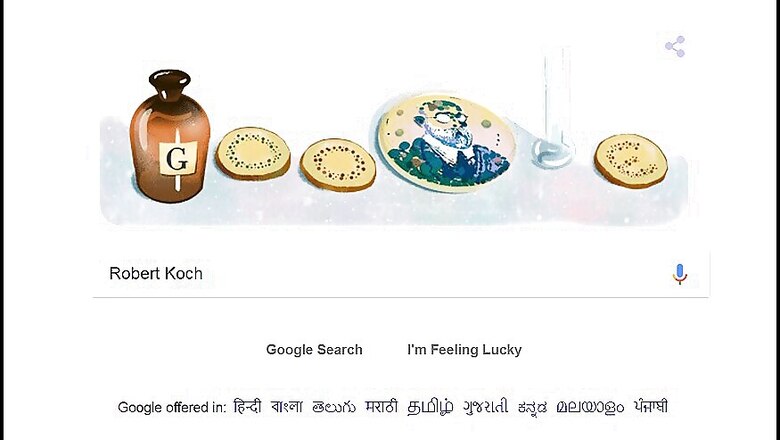
views
New Delhi: Google, on Sunday, dedicated its doodle to German physician and microbiologist Robert Koch.
Well known for identifying the specific causative agents of tuberculosis, cholera, and anthrax, while providing experimental support for the concept of infectious disease, Koch's lived during the mid-19th century.
He was born in Clausthal in Hanover, Germany on December 11, 1843, and died on May 27, 1910, in Baden-Baden, Germany.
The son of a mining engineer, Koch had apparently announced to his parents that at the age of five that he had taught himself to read, thanks to newspapers.
He developed a new experimental method to test whether a particular micro-organism is the cause of a disease. Interestingly, his assistant, Julius Richard Petri, developed the Petri dish, making the observation of bacteria easier.
The physician's research led to the creation of Koch’s postulates, a series of four generalised principles linking specific micro-organisms to specific diseases that even today are considered the 'gold standard' in medical microbiology.
As a result of his groundbreaking research on tuberculosis, Koch received the Nobel Prize in Physiology or Medicine in 1905.




















Comments
0 comment